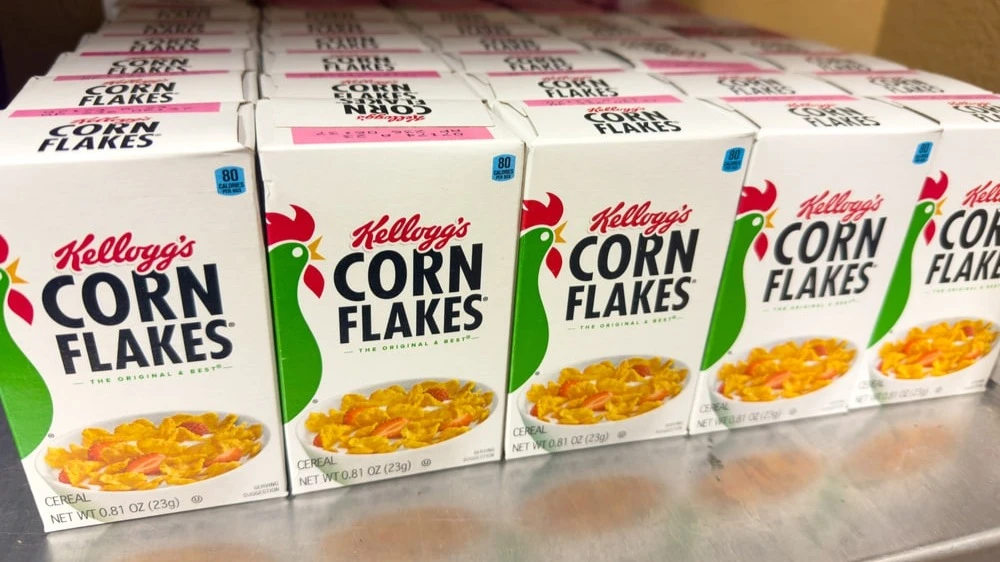Kellogg's cereal maker to change ownership. Why does Ferrero need a troubled business?

Privately held Italian candy maker Ferrero, known for the Ferrero Rocher, Nutella and Kinder brands, is close to buying iconic but troubled breakfast cereal maker Kellogg's for twice its market value, the Financial Times reported, citing sources. The food industry giants are being forced to adapt to changing consumer preferences and the growing demand for healthy food.
Details
Ferrero and WK Kellogg - maker of Kellogg's breakfast cereals, Corn Flakes, Rice Krispies and Froot Loops - could announce a deal as early as this week. According to word FT sources familiar with its terms, WK Kellogg's is valued at up to $3 billion - double its market capitalization of $1.5 billion.
The deal will combine two brands with rich histories: Ferrero came into being in 1946 thanks to Italian confectioner Pietro Ferrero, while Kellogg was founded in 1894 by Will Kellogg, the creator of the first cornflakes. In 2023, Kellogg split into WK Kellogg and Kellanova. The former began specializing in breakfast cereals for the North American market, the latter in snacks (Pringles chips and Pop-Tarts crackers). In 2024, food giant Mars agreed to buy Kellanova for $36 billion - the deal is still undergoing antitrust scrutiny in the EU.
WK Kellogg has been performing poorly since the separation, with its stock underperforming the market, sales in the first quarter of 2025 falling nearly 6% year-over-year, and net income nearly halving. After The Wall Street Journal was the first to report on the pending deal, WK Kellogg's shares jumped more than 50% on the New York Stock Exchange.
Context
Ferrero has set its sights on the U.S. as it seeks to expand geographically and product offerings. In 2018, the company purchased Nestlé's U.S. chocolate business for $2.8 billion, and four years later agreed to buy Blue Bunny ice cream maker Wells Enterprises.
WK Kellogg positions itself as a manufacturer of healthy food. However, the company has been criticized for using brightly colored dyes in its breakfast cereals. "They are literally poisoning our children," said Robert F. Kennedy Jr. a few months before he took over the U.S. Department of Health. Kellogg has pledged to eliminate synthetic colors from school lunches by the 2026-2027 school year, but has not yet named a timeline for conventional products.
The shift toward healthier products has already been a driver of deals in the industry: in 2025 alone, PepsiCo acquired low-calorie soda brand Poppi for $1.95 billion and "healthy" Mexican snack maker Siete Foods for $1.2 billion. Post Holdings in June purchased organic food maker 8th Avenue for $880 million.
What the analysts are saying
Kellogg, whose main competitor is General Mills, has a "leading" share of the breakfast cereal market in North America, but that share is "eroding as its entire portfolio is in a declining category," stated investment rating agency Morningstar. In addition, by losing access to the fast-growing snacks business, which was left to Kellanova in the business split, WK Kellogg has lost a lot of scale - and that has weakened its bargaining position with raw material suppliers and distributors, Morningstar argued.
According to data from Marketscreener, stock analysts have not yet reacted by adjusting their investment ratings and price targets on WK Kellogg shares to reports of a possible merger with Ferrero. The current consensus rating on WK Kellogg is Neutral (Hold). The average target price of $17.9 per share is 2% above the stock's closing price on July 9.
This article was AI-translated and verified by a human editor
